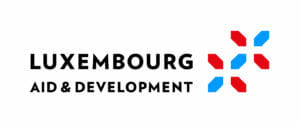
The development cooperation of the Grand Duchy of Luxembourg is characterised by its strong commitment to poverty reduction and humanitarian aid, and to effective work with its partner countries. In 2009, the Luxembourg government reached the quantitative goal it had set itself in the 2000s for the first time: to reach an official development assistance (ODA) level of one percent of the gross national income. ODA is implemented by the instruments of bilateral and multilateral cooperation, and in cooperation with development NGOs.
Luxembourg’s General Development Cooperation Strategy: The Road to 2030 outlines four thematic priorities: 1. Improving access to quality basic social services, 2. Enhancing socio-economic integration of women and youth, 3. Promoting inclusive and sustainable growth, and 4. Strengthening inclusive governance. Initial progress is outlined in the 2019 Annual Report.
Private sector development (PSD) policy and strategy
The Ministry of Foreign and European Affairs’ Directorate for Development Cooperation and Humanitarian Affairs is responsible for the implementation of Luxembourg’s development cooperation strategy, which includes private sector development and engagement through a variety of initiatives. Private sector development, engagement and inclusive business take prominent roles in Luxembourg’s ‘Road to 2030’, reflecting the country’s positive experiences in working with the private sector.
Bilateral development cooperation is mainly implemented through the development agency LuxDevelopment, which manages a business challenge fund; strengthens value chains and facilitates access to markets; provides technical assistance to a sustainable forestry investment fund; and implements an ICT development programme in Burkina Faso.
In order to enhance the effectiveness of its policy, Luxembourg focuses most of its efforts on a limited number of partner countries, which are mostly least developed countries (LDCs). These are Burkina Faso, Cabo Verde, Mali, Niger, Senegal, Nicaragua, and Laos. The remainder of the resources is spread over other countries, including Kosovo, Mongolia, Vietnam, El Salvador, Myanmar, and the Palestinian territories, and also covers regional cooperation.
Partnership mechanisms for the private sector
Luxembourg’s development cooperation has maintained a 20-year commitment to actively support the development of inclusive finance, recognising that these tools constitute important mechanisms for poverty reduction. More recently, the dynamism of the private sector has been playing an increasingly important role in development affairs. Private enterprise, investment and innovation are major drivers of productivity, which in turn drives inclusive economic growth and job creation.
- Luxembourg’s development cooperation supports a number of microfinance and inclusive finance initiatives, including the Inclusive Finance Network.
- The Business Partnership Facility (BPF) is a financing facility launched in 2016 that aims to encourage the Luxembourgish and European private sector to work with partners in developing countries in order to establish sustainable commercial projects.
- The Enhanced Integrated Framework (EIF) is a multi-donor programme linked directly to the World Trade Organization that helps least developed countries play a more active role in the global trading system.